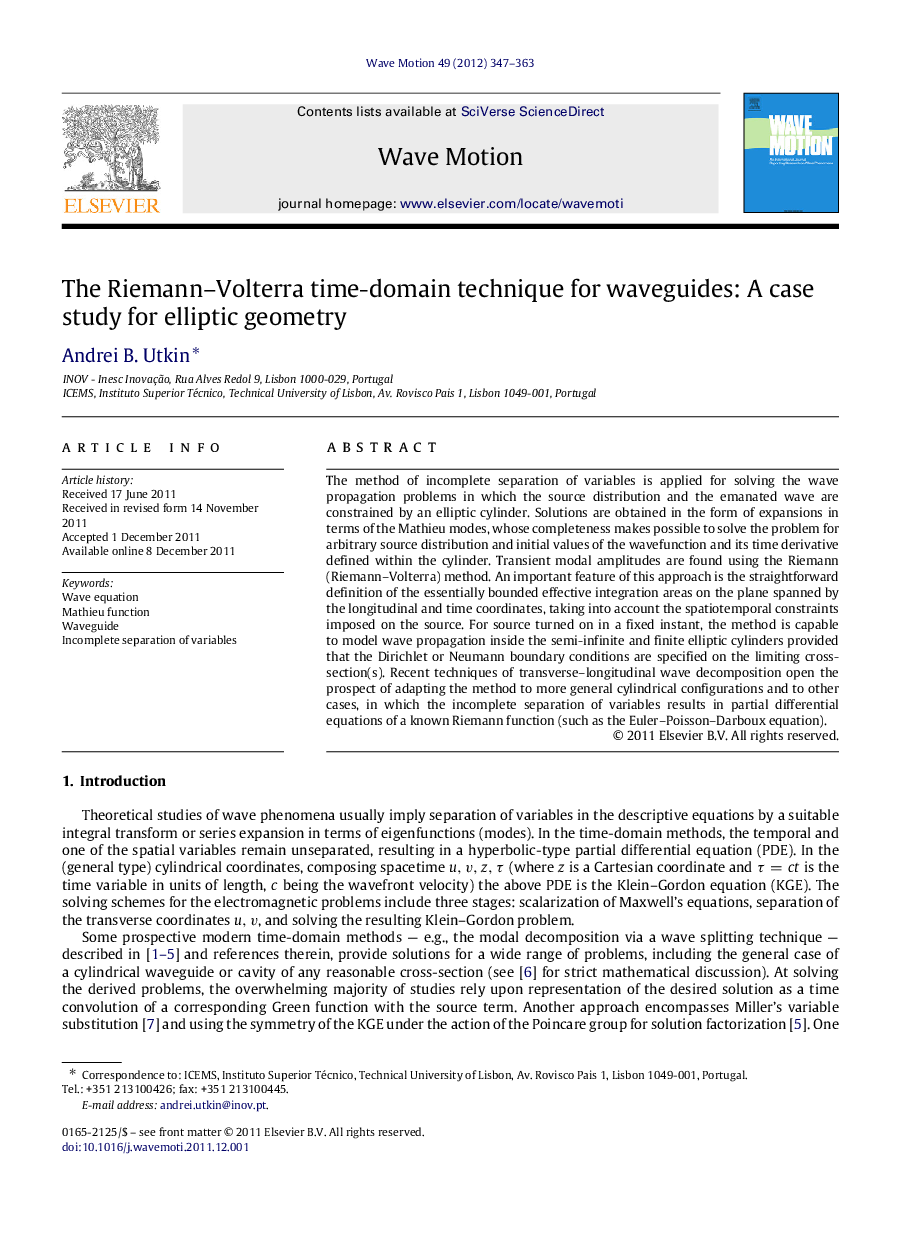| Article ID | Journal | Published Year | Pages | File Type |
|---|---|---|---|---|
| 1901294 | Wave Motion | 2012 | 17 Pages |
The method of incomplete separation of variables is applied for solving the wave propagation problems in which the source distribution and the emanated wave are constrained by an elliptic cylinder. Solutions are obtained in the form of expansions in terms of the Mathieu modes, whose completeness makes possible to solve the problem for arbitrary source distribution and initial values of the wavefunction and its time derivative defined within the cylinder. Transient modal amplitudes are found using the Riemann (Riemann–Volterra) method. An important feature of this approach is the straightforward definition of the essentially bounded effective integration areas on the plane spanned by the longitudinal and time coordinates, taking into account the spatiotemporal constraints imposed on the source. For source turned on in a fixed instant, the method is capable to model wave propagation inside the semi-infinite and finite elliptic cylinders provided that the Dirichlet or Neumann boundary conditions are specified on the limiting cross-section(s). Recent techniques of transverse–longitudinal wave decomposition open the prospect of adapting the method to more general cylindrical configurations and to other cases, in which the incomplete separation of variables results in partial differential equations of a known Riemann function (such as the Euler–Poisson–Darboux equation).
► Signal solutions of the wave problem are obtained for elliptic cylinder configurations. ► Completeness of Mathieu modes makes possible to solve the problem for arbitrary source distribution and initial conditions. ► The method can model waves inside semi-infinite and finite elliptic cylinders. ► Modal solutions are adaptable to more general cylindrical configurations.
